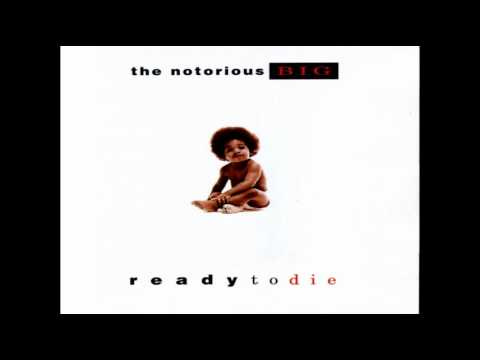THE YEAR HIP HOP TOOK OVER
1995 is the year R&B was displayed as the cutting edge of black pop music
As we celebrate fifty years of hip hop, I’ve been contemplating when and how this once underground genre replaced R&B as the center of black music creativity. For me, the turning point year in terms of sound and sales for the hip hop was 1995. It was a year in which disco’s old standard bearer, Barry White, enjoyed a one-off comeback hit with the mid-tempo “Practice What You Preach.” Anita Baker, singer who broke big in the ‘80s with a husky jazz inflected alto, had her last substantial hit with the very adult contemporary “I Apologize.” Legacy acts like Whitney Houston and Michael Jackson still sold millions of vinyl and CD recordings. Vocal harmony groups, now as gone from mainstream black music as live string arrangements, were prospering. Boyz II Men’s first two albums sold a combined twenty million copies with Jodeci, Silk, Brownstone, New Edition, Monkenstef, Soul 4 Real and others were still commercially viable.
But, in terms of long term, ongoing impact, ’95 stood in the shadow of Dr. Dre, who’d revolutionized the sound of rap music with ‘The Chronic’ and his collaborations with Snoop Dogg. While ‘95 was actually not a big year for Dre in terms of hits he produced, his overall influence was pervasive. One of his chief disciplines proved to be his Sean ‘Puffy’ Combs who listened carefully to Dre’s alchemy of smoothed out funk grooves with skilled MCs. Along with his Hitmaker’s team (which included Deric Angelette, Chucky Thompson, Stevie J, Rashad Smith, Ron Lawrence), Combs supervised a recording that defined the hip hop takeover and reverberates through the culture to this day.
The original “One More Chance” on Notorious BIG’s ‘Ready To Die’ had a hard, driving bap boom beat and a sampled keyboard that drops oddly in and out. Female voices sing, “Oh Biggie, give me one more chance,” at just one point. The production is so simple it sounds it was made in a BK schoolyard. The “One More Chance/Stay With Me (Remix),” produced by Combs and Rashad Smith, used a sample from DeBarge’s “Stay With Me” to create a creamy backdrop that was more cognac mellow than school schoolyard Ole E. Backed by a cooing chorus of his wife, Bad Boy signee Faith Evans, and Mary J. Blige, BIG wrote softer, more seductive lyrics and repeated vocals hooks (“I got that good love girl/ you didn’t know”) that sautéed a raw song beautifully.
The “One More Chance” remix entered the pop chart at #5 which, at the time tied it with Michael and Janet Jackson’s '“Scream” made it the highest debuting single of all time. That, of course, automatically made it the highest debuting rap single ever. It went to number one on the R&B chart, peaked at number two on the pop chart and sold over one million copies. This immense success confirmed one musical trend and established an industry norm. Rap records based on R&B records were not just capable of being hits, but often had a commercial reach the original recordings lacked. “Stay With Me,” written by the siblings El, Marty and Bunny DeBarge, wasn’t even a single off their excellent 1982 ‘In A Special Way’ album. The piano riff that anchored the remix was played by El, an unheralded genius of ‘80s R&B, whose career has been repeatedly derailed by drug addiction.
The formula that “One More Chance” epitomized would be heard throughout ’95 in number one pop hits by Coolie (“Gangster Paradise”), Mariah Carey (“Fantasy” with a remix produced by Combs featured the Wu Tang Clan’s Ole Dirty Bastard) and TLC (“Waterfalls”) as well as a slew of top ten hits (Luniz’s “I Got 5 On It”, Method Man & Mary J. Blige’s “I’ll Be There You/You’re All I Need To Get By,” Soul For Real’s “Candy Rain.)
Arista Records, the same label that had propelled Whitney Houston to unprecedented sales for a female vocalist, would be crucial to the hip-hopping of R&B. Label president Clive Davis gets a lot of credit for helping mastermind Houston’s career. But Davis should be equally acknowledged for pushing the music Bad Boy and L.A. Reid & Kenny Edmond’s LaFace as pop. This was a consistent support that hip hop rivals Uptown didn’t receive from MCA, Def Jam didn’t receive from Sony or Cold Chillin’ from Warner Bros.
Davis’ backing of labels led by visionary black artistic leaders goes back to his days at CBS records when, in the ‘70s, he made deals for Gamble & Huff’s Philadelphia International, the Isley Brothers’ T-Neck and Maurice White’s ARC and pushed their recordings as pop, as well as R&B records. The irony is that so many of the records Davis released at that fertile period for R&B and funk would, twenty years later, be fodder for a new generation to strip mine for the samples, vocal hooks, and instrumental riffs that would make the original recordings antiques.
After ‘95 the hip hop/R&B marriage would allow make “hook singers,” like the crooner Nat Dogg, essential parts of hit making production and lead, eventually, to rappers “singing” their own hooks and to the auto tune era where Drake is as much an singer as an MC. It’s a long road to 2023, but I believe “One More Chance/Stay With Me” is the starting point.
#hiphop50



